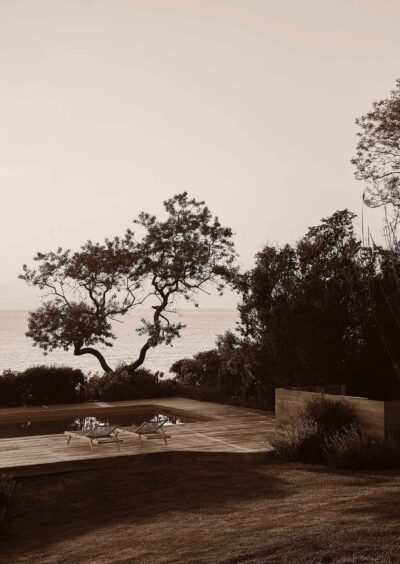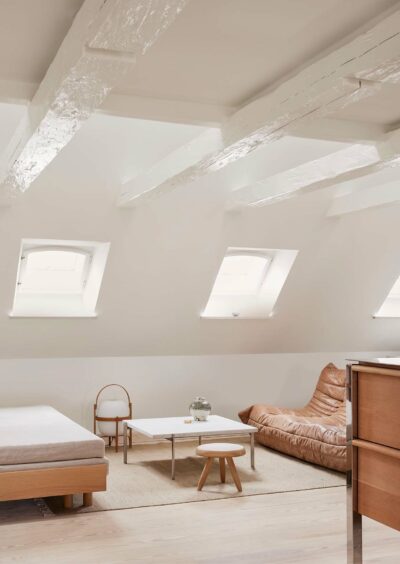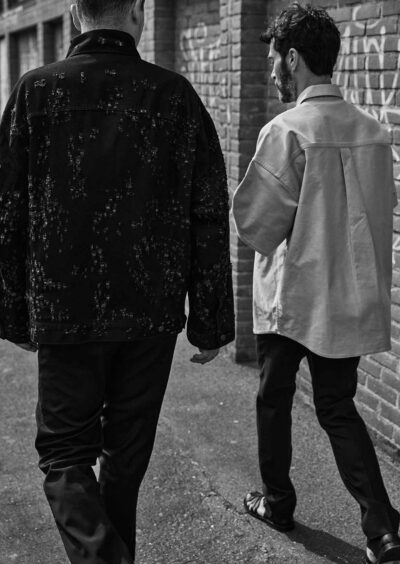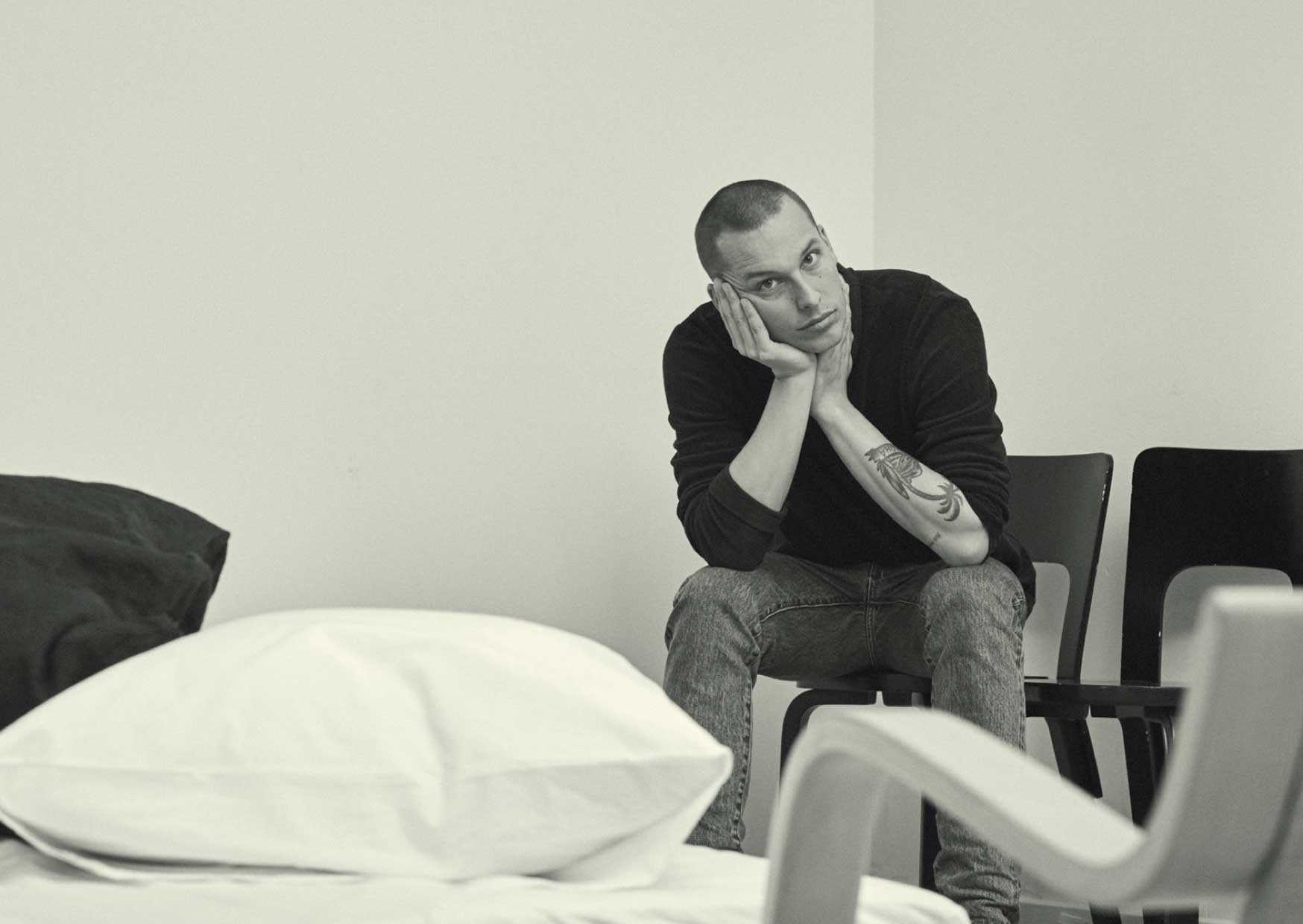
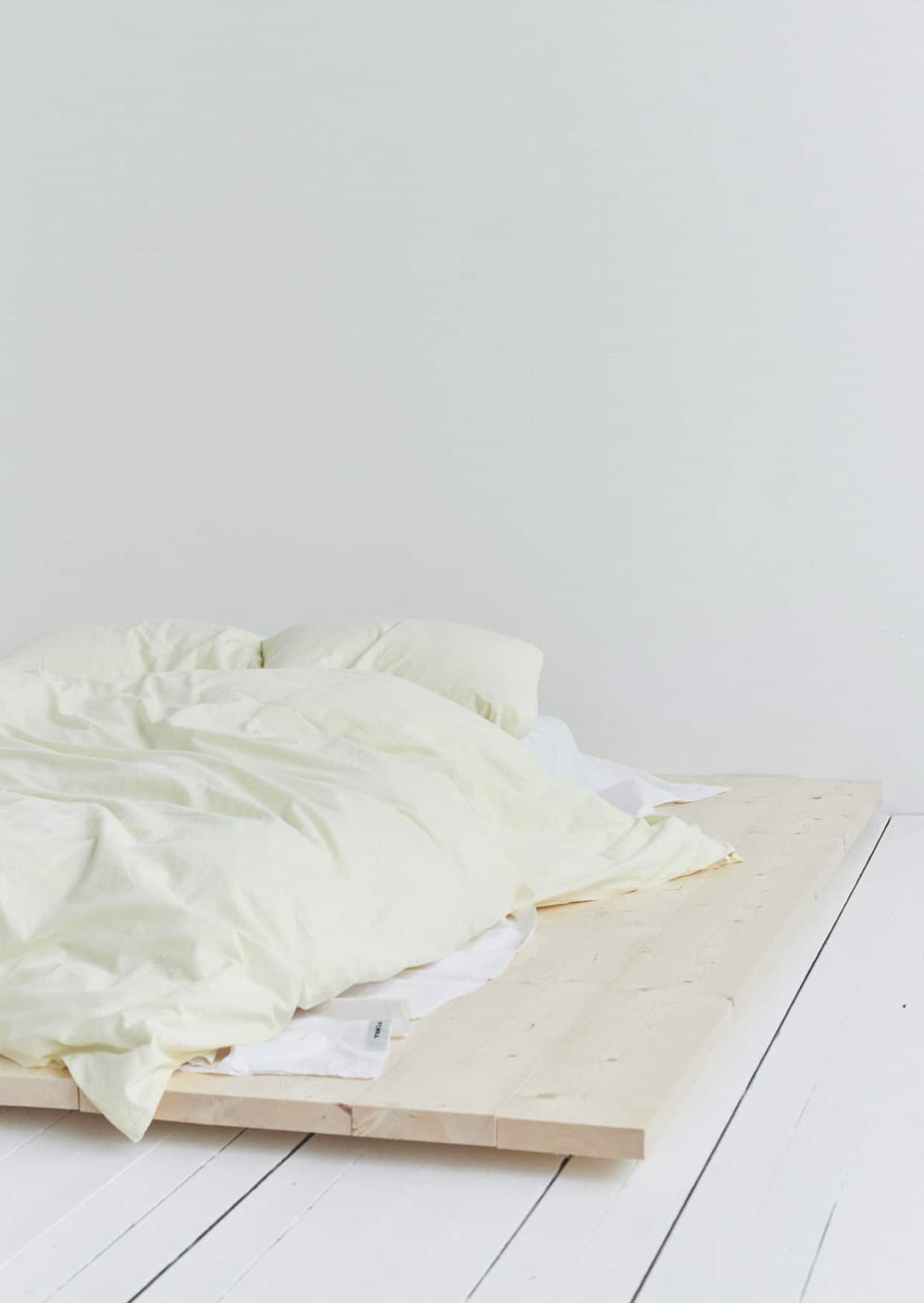
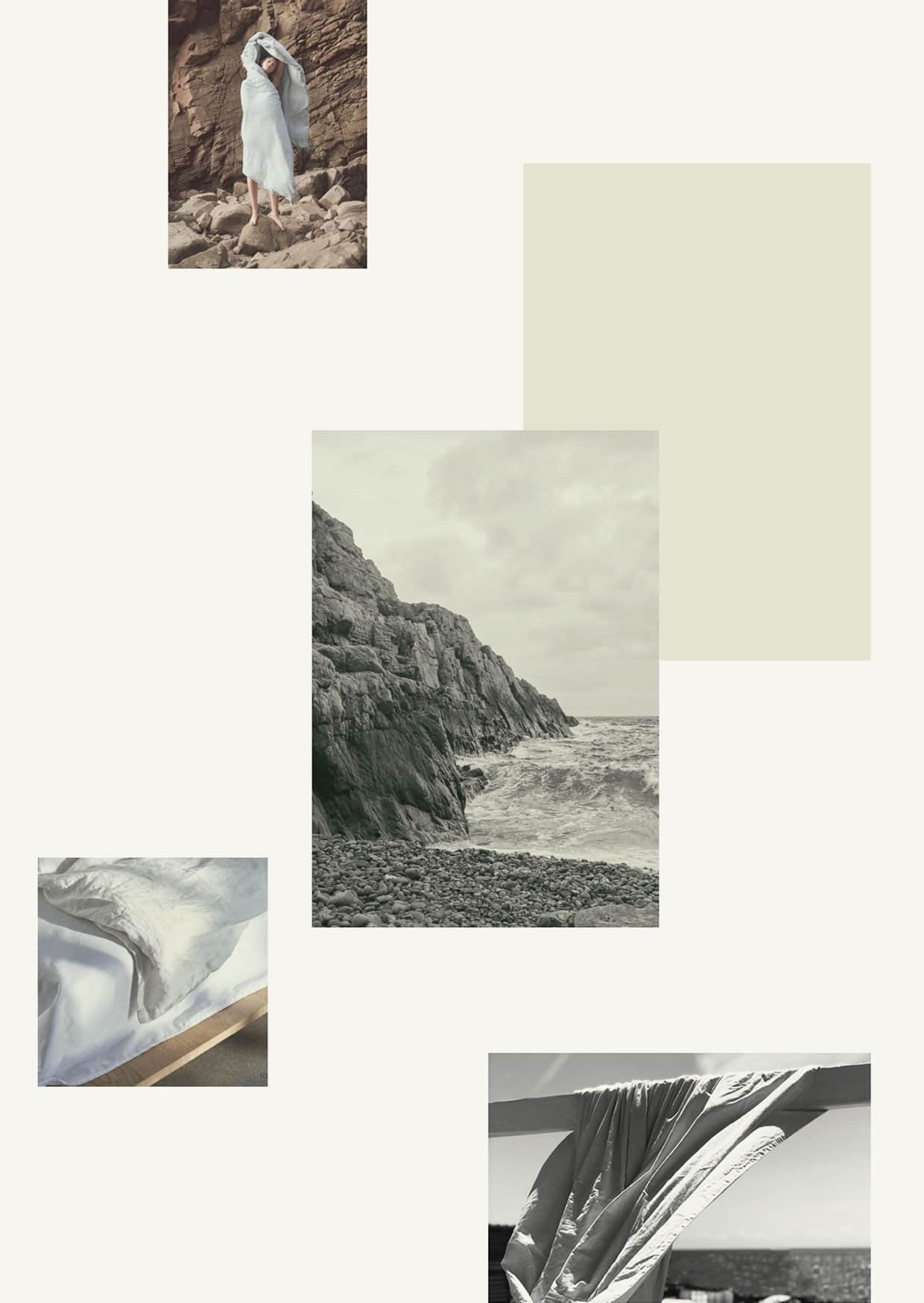
the touch of things
portrait
The single most important characteristic of a sheet is how it feels, says Charlie Hedin who founded a bed linen company based on his experiences as a sailor.
I spent my youth sailing in the Swedish archipelago and had a part-time job as a sail maker as a teenager, so I know the importance of textile quality. It keeps you warm, dry, comfortable, safe. When I founded Tekla Fabrics, I felt bed linen was lacking that quality and functionality intersecting with aesthetics. As textiles are something we wear and keep so close to the body, I look at their qualities with scrutiny. The feel of things is something I spend the most time pondering.
Bed sheets need to be both crispy and soft. And they need to keep their crispiness even after being washed a hundred times. They can’t be reliant on ironing, because who bothers ironing their linen today?
We work with a cotton percale that would usually be incredibly stiff but we stonewash it so it mellows and becomes soft to the touch – something not quite high street, not too ‘Italian’ luxury.
Beach towels are another challenge. Ours are 600 GSM terry, insanely thickly woven with long loops for greater absorbency, because they need to work as a towel at home, but also be dragged to the beach, to sleep on in the sun. It’s the right quality for the right function. Everything in its place.
I feel that our campaigns transfer that quality into a state of mind. Maybe a girl on the cliffs of Kullen in Sweden swirled in bed linen isn’t the most obvious connection, but it’s a feel. It’s dreamy and playful. It’s what home textiles should be all about. You don’t change your sofa or bed every day, but textiles enable an immediate transformation.
Last year, as a kind of incarnation of this dreamy fantasy, my friend André Saraiva and I came up with Petit Miramar. André hails from Portugal, where we found a little beach restaurant with three rooms out the back. Basically, it’s a restaurant you can live in. A chef, Jojo, makes all the food, which is organic and from the sea outside. All the neighbours are fishermen and they pull the boats up on the beach and clean the fish right there. People come to surf, to unwind. It’s very spartan, all basics, no fluff. If the hot water in the shower doesn’t work, you just have to go out and swim in the ocean.
This story was featured in The Paper, published by Ark Journal during 3daysofdesign 2019, as part of the Hotel Charlottenborg design exhibition.
AS TOLD TO ALISA LARSEN
PHOTOgraphy Philip Messmann / TEKLA
THE REAL PHILLIP LIM
Phillip Lim has changed. The designer sees beauty in another way and his simple beachside shack on Long Island was a catalyst to a shift in perspective and priorities.
DOWN SIZE, UP CYCLE
When creative director at Marimekko Rebekka Bay and her husband Ricky Nordson decided to scale down their lives and living space, they knew their new Copenhagen apartment would require tailor-made design solutions.
FORMAFANTASMA
— THROUGH THE LOOKING GLASS
Milan-based duo Formafantasma are agents of change, investigating through exhibitions, research projects, symposia and teaching the ecological, historical, political and social forces shaping design today.

the touch of things
portrait
The single most important characteristic of a sheet is how it feels, says Charlie Hedin who founded a bed linen company based on his experiences as a sailor.
I spent my youth sailing in the Swedish archipelago and had a part-time job as a sail maker as a teenager, so I know the importance of textile quality. It keeps you warm, dry, comfortable, safe. When I founded Tekla Fabrics, I felt bed linen was lacking that quality and functionality intersecting with aesthetics. As textiles are something we wear and keep so close to the body, I look at their qualities with scrutiny. The feel of things is something I spend the most time pondering.
Bed sheets need to be both crispy and soft. And they need to keep their crispiness even after being washed a hundred times. They can’t be reliant on ironing, because who bothers ironing their linen today?
We work with a cotton percale that would usually be incredibly stiff but we stonewash it so it mellows and becomes soft to the touch – something not quite high street, not too ‘Italian’ luxury.
Beach towels are another challenge. Ours are 600 GSM terry, insanely thickly woven with long loops for greater absorbency, because they need to work as a towel at home, but also be dragged to the beach, to sleep on in the sun. It’s the right quality for the right function. Everything in its place.
I feel that our campaigns transfer that quality into a state of mind. Maybe a girl on the cliffs of Kullen in Sweden swirled in bed linen isn’t the most obvious connection, but it’s a feel. It’s dreamy and playful. It’s what home textiles should be all about. You don’t change your sofa or bed every day, but textiles enable an immediate transformation.
Last year, as a kind of incarnation of this dreamy fantasy, my friend André Saraiva and I came up with Petit Miramar. André hails from Portugal, where we found a little beach restaurant with three rooms out the back. Basically, it’s a restaurant you can live in. A chef, Jojo, makes all the food, which is organic and from the sea outside. All the neighbours are fishermen and they pull the boats up on the beach and clean the fish right there. People come to surf, to unwind. It’s very spartan, all basics, no fluff. If the hot water in the shower doesn’t work, you just have to go out and swim in the ocean.
This story was featured in The Paper, published by Ark Journal during 3daysofdesign 2019, as part of the Hotel Charlottenborg design exhibition.
AS TOLD TO ALISA LARSEN
PHOTOgraphy Philip Messmann / TEKLA


